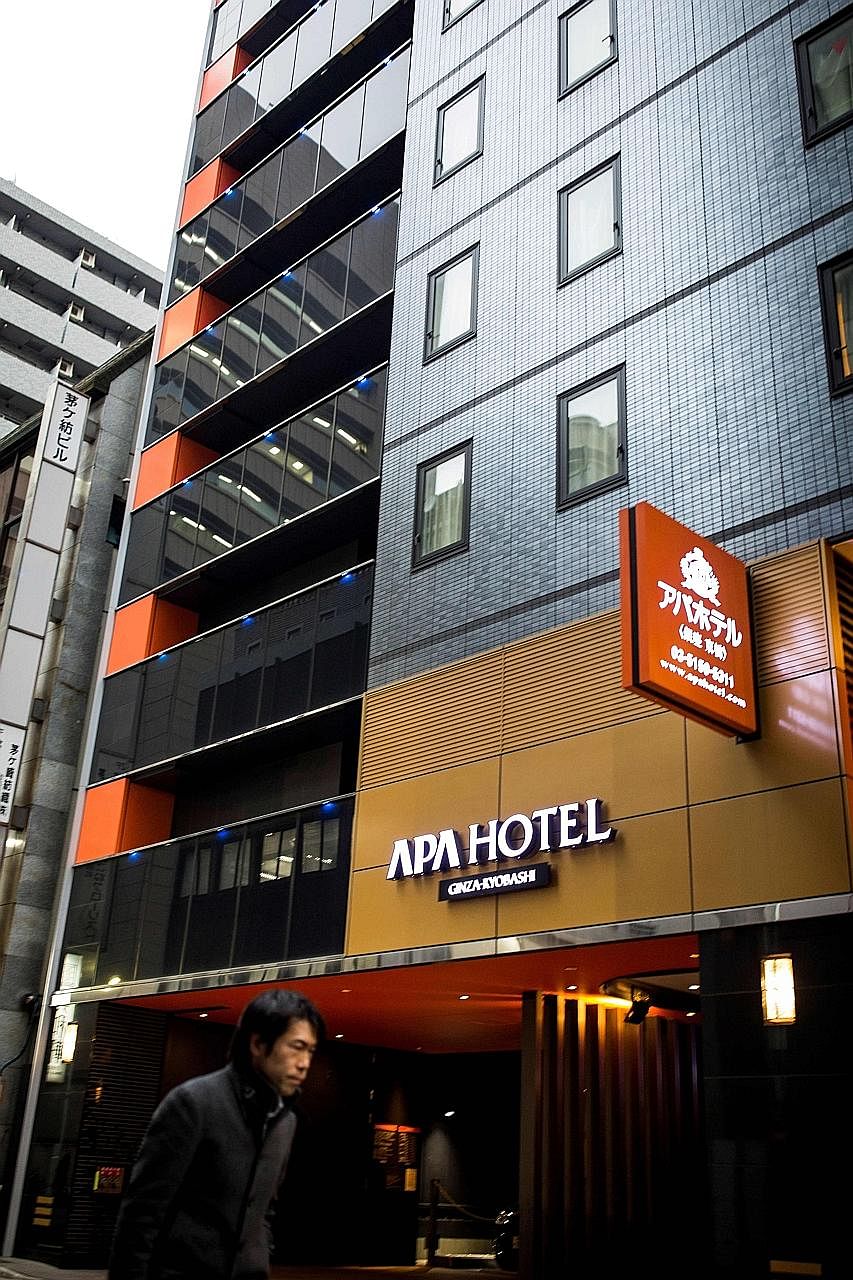SHANGHAI • China's tourism administration has urged tour operators to sever ties with a Japanese hotel chain after an escalating row over the hotelier's denial of the 1937 massacre by Japanese troops in the Chinese city of Nanjing.
A furore erupted this month over books by Mr Toshio Motoya, president of Tokyo-based hotel and real estate developer APA Group, that air his revisionist views and are placed in every room of the firm's more than 400 hotels.
Mr Motoya, using the pen name Seiji Fuji, wrote that stories of the Nanjing massacre were "impossible". He added: "These acts were all said to be committed by the Japanese army, but this is not true."
The China National Tourism Administration is firmly opposed to APA Group's "provocation" of Chinese tourists, spokesman Zhang Lizhong said yesterday.
Mr Zhang said in a statement on the body's website: "We demand that all operators with international tours and online platforms completely stop all cooperation with this hotel. We call on Chinese groups and the many tourists who visit Japan to resist APA's wrong approach and avoid spending money at this hotel."
APA did not immediately respond to requests for comment.

Official support for a boycott of the Japanese chain escalates calls that had circulated online and in some of China's state-run media.
The official Xinhua news agency added its voice yesterday, calling the incident "only the tip of the iceberg of Japan's ultra-right wing's efforts to revise the nation's war history".
Japan's wartime occupation of Nanjing and the resulting massacre is a highly contentious issue between the uneasy neighbours.
China says Japanese troops killed 300,000 people in the city. A post-war Allied tribunal put the death toll at about half that.
To the fury of China, some conservative Japanese politicians and academics deny the massacre took place or they put the death toll much lower.
Japan's Deputy Chief Cabinet Secretary Koichi Hagiuda downplayed the incident yesterday, saying China and Japan should work together on common issues facing the international community, rather than focusing too much on the "unhappy past".
Japan attracted about 6.3 million tourists from China last year, the largest such bloc of visitors, up nearly 28 per cent from 2015. Their spending helped buoy the sluggish economy in areas such as hotels and cosmetics.
APA president Motoya previously told Reuters that Chinese tourists made up only 5 per cent of the chain's customers in Japan and that he did not expect the row to affect the hotel.
Right-wing literature has long been a staple, if odd, amenity at APA hotels in Japan. Much of it is written by Mr Motoya, who uses a pen name but acknowledges authorship.
The books and articles describe a kind of alternative historical universe, one in which Japan fought entirely nobly in World War II and in which its alleged atrocities were invented by Chinese and Korean propagandists.
The accounts differ sharply from those of mainstream historians, both in Japan and abroad.
Mr Motoya and his wife Fumiko are among the most prominent backers in Japan of rightist historical revisionism.
Guests at their long-running wine parties have included Mr Shinzo Abe, Japan's current prime minister, according to a record of an event in 2005 that includes a photograph and was circulated by APA at the time.
A Japanese magazine, Shukan Gendai, has estimated that Mr Motoya, who serves as president of the overall APA Group while his wife leads the hotel division, is Japan's fourth-richest person, with assets worth 220 billion yen (S$2.8 billion).
REUTERS, NYTIMES
